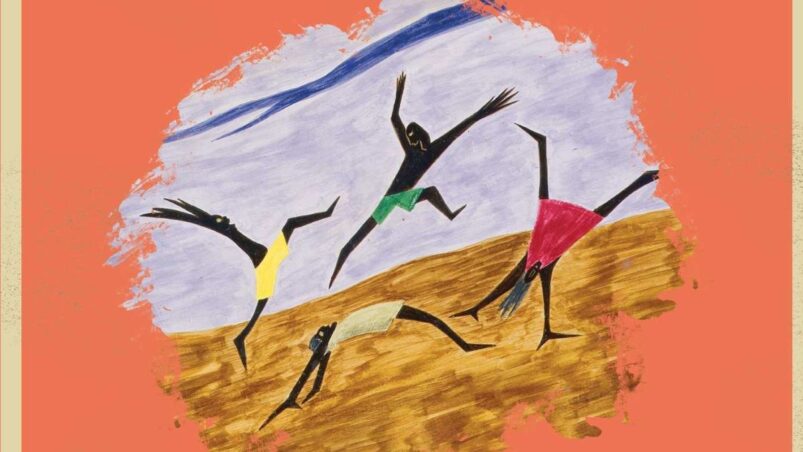Where love exists, hope can arise. Still, the human capacity to love finds itself inhibited by surrounding environments or adverse circumstances. Dehumanisation leads some to regard themselves as unable to love or worse; unworthy of love. If a person endures degrading brutality their outlook on human connections may be filtered through a warped perception where bonds with another feel pointless. But for others, meaningful bonds, whether platonic or romantic, with another human being enhance life. Love can carve out a space to exist even amidst horrific trauma. Love can give us a reason for living. Two couples in Jabari Asim’s Yonder discover strength through blossoming relationships even while locked within the confines of chattel slavery.
Set in the mid-19th century, Yonder enters the extensive canon of American fictional slave narratives. Asim’s novel weaves magical realism into his fictionalised, yet historically informed text. Multiple narratives weave through time chronologically in this brutal book. Four enslaved individuals recount their unique interior and exterior experiences under plantation owner Cannonball Greene’s reign, through alternating viewpoints.
Readers are first introduced to headstrong William as he immediately demonstrates the power of language. William gives the name Thief to Cannonball Greene and any other White person involved in slavery. And instead of referring to themselves as “slaves”, William explains how his fellow imprisoned people coin the term Stolen in reference to their stolen existence by the Thieves.
Cannonball Greene thinks of himself as an academic expert in terms of Black slaves living in America. Because he can’t understand the “lesser” mindsets of his enslaved individuals, he believes them incapable of emotions such as true love. Language separates captor and captured. The Stolen’s dialect is lost to Greene, thus he believes they don’t experience emotion similar to the ruling White patriarchy.
The elders pass down another verbal tradition to the Stolen children as well. Teaching their offspring how words hold power to possibly alter the condition of their lives, the ancestors choose seven words to whisper to Stolen children at birth. Throughout their lives, the children recite these seven words until they root themselves in their minds. There are words for each individual, belonging to them, and them alone. These are words that are not stolen, words that may fail to save them from the atrocities they face, yet words they can lean on when everything they have has been stripped away: “Our language, our secret tongue, was our last defense.” Through language, the Stolen divide themselves from the words and beliefs impressed on them by their captors. Language wields a mighty significance for the Stolen whose lives they can only begin reclaiming through small victories.
The motif of Death permeates Yonder in surprising ways. One death, in particular, fortifies the relationship between William and the freer-thinking Cato. The inciting incidents ominously foreshadow the ghastly horrors awaiting them. However, William and Cato’s shared traumatic incident ignites an enduring companionship. Love prevails over death for the two men in their cruel existence.
Buoyed by inklings involving freedom, Cato serves as the ideal foil to William. Similarly, the women in Yonder function as foils to the men. When Black preacher Ransom comes to Placid Hall, he plants seeds of freedom in the Stolen’s aching hearts. Ransom’s words about independence and fleeing to Yonder (Canada) – a place where the Stolen can find freedom – entice Cato, Margaret, and Pandora. While William struggles with the risks such thinking incurs, Ransom’s language evolves into a plea for the other three characters. Margaret has sway over William though. Bold and outspoken, her love for William seeps within the trenches of his steely heart. Cato bolsters Pandora’s love, but Pandora consistently proves herself as a woman set on achieving her goals as a fully-realised individual.
Yonder has all the makings of an award-winning novel. The magical realism elements do not detract from the narrative. For some Stolen individuals in the book, the fantasy worlds stories provide or interactions with spiritual forces offer surrealist, comforting forms of communicating their internalised thoughts. Additionally contributing to its transcendent status in the realm of poignant literature, each character’s narrative presents idiosyncratic voices readers can easily identify.
Asim shows characters communicating with diverse versions of freedom, love, and faith so we can remain cognizant of both intersectionality and individuality. Yonder’s prose drips with both harshness and allure. Twinkling moments of joy and laughter help assuage the stomach-churning scenes where the Stolen’s pain feels palpable. Jabari Asim’s Yonder elegantly balances compassion and anger, singularity and dualities, with a clearly defined message about love and language.
Review copy provided.
READ NEXT: 21 Best Books Of 2021
Some of the coverage you find on Cultured Vultures contains affiliate links, which provide us with small commissions based on purchases made from visiting our site. We cover gaming news, movie reviews, wrestling and much more.



